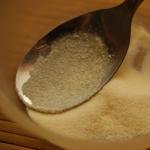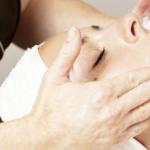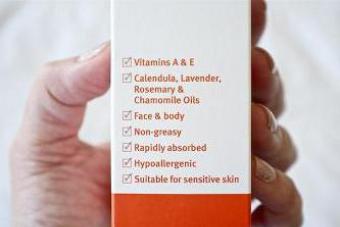A person needs sense organs not only for orientation in space, they can also warn of internal problems in the body. If the child often scratches or rubs the eyelids or nose, parents should be concerned. Probably, the baby shows the first symptoms of some kind of disease, which are very dangerous to ignore, because in the long term an uncontrollably developing disease can lead to deterioration or loss of vision and difficulty breathing.
If a child's eyes and nose itch, parents should definitely determine the cause and eliminate it.
Reasons why a child may rub his eyes and nose, accompanying symptoms
Itching in the eyes and nose occurs for various reasons. Their nature can be judged by a number of accompanying symptoms. How can parents understand why their child itches?
First of all, it is necessary to exclude the possibility of the baby getting injured, as well as getting into his eye or nose of a foreign object. This can be done by evaluating the nature of the itching. For example, if the baby’s iris only itches in the right eye, it’s likely that he just got a speck under the eyelid.
The cause of itching may be some kind of disease. To understand which one, parents should familiarize themselves with the list of diseases in which the eyes or nose itch.
Pathological processes
Itching in the area of the nose in children, as a rule, indicates a beginning allergy. Less commonly, this symptom manifests itself in other diseases:
- SARS, influenza and other infections. Associated symptoms- fever, general weakness, loss of appetite.
- Infection with a fungus (mycosis, candidiasis). An accompanying symptom is sneezing.
- inflammatory processes. Associated symptoms are fever, difficulty breathing.
All of these ailments, under certain circumstances, can also cause itching in the eye area, but most often other diseases become the cause of eye problems. The most common among them are:
- conjunctivitis;
- demodicosis;
- barley;
- trachoma.
 allergic conjunctivitis
allergic conjunctivitis These diseases are difficult to diagnose. An ophthalmologist should do this, therefore, at the slightest suspicion of an eye infection, parents need to urgently show the child to a specialist.
Situations when parents should not worry
While the child is a baby, non-verbal signals are his main way of communicating with parents. Rubbing your eyes or nose in this case is just a way to communicate your condition, and by no means a sign of an impending illness.
Why do newborn babies itch at all? Before you worry about the health of the child, you need to make sure that the cause of his condition does not lie in one of the following factors:
- Fatigue. If a child rubs his eyes every time it's bedtime, parents don't need to worry. The kid just chose this way to tell mom that he wants to sleep. Rubbing the eyelids is a fairly common non-verbal signal in people of all ages, indicating physical fatigue and the body's need for sleep.
- Contact with mucous membranes of water. If a child rubs his eyes and nose every time after a bath, parents should be careful when bathing the baby. Almost certainly, his violent reactions are caused by irritation from water or soap suds that got on the mucous membranes. You can verify this by noting that after some time after bathing, the child calms down on its own.
- Teething. If the baby constantly itches, rubbing his eyes and nose especially hard, but does not show other alarming symptoms of poor health (except, perhaps, copious saliva), then most likely his first teeth will start to cut. During this process, itching in the eyelids and sinuses is completely normal.
 In infancy, rubbing the eyes or nose are common non-verbal cues in most cases.
In infancy, rubbing the eyes or nose are common non-verbal cues in most cases. None of the above cases does not require parents to take any emergency measures and, moreover, to see a doctor. Accordingly, you should not worry about the health of the baby either.
The situation is even easier with older children. As a rule, they themselves can talk about what exactly worries them, but what if the child often rubs his eyes, but does not complain about any other problems, including the desire to sleep and the ingress of water on the mucous membranes? Is it some kind of dangerous disease?
Most likely, the reason for the strange condition of the baby is in the ordinary “dry eye syndrome”. To make sure of this, parents will have to remember what their child has been doing in the last few hours. Drying of the mucous membrane of the eye is provoked by:
- long sitting in front of a computer or TV screen;
- reading at close range;
- staring at something in poor light.
 If you rub your eyes too often, an ophthalmological examination is recommended.
If you rub your eyes too often, an ophthalmological examination is recommended. It is easy to alleviate the condition of a child with DES. It is enough to wash it and, if necessary, drip eye drops. The syndrome itself is not a cause for concern, but if the child shows its symptoms too often, parents should take the child to an ophthalmologist. Perhaps the baby's eyesight is gradually deteriorating.
Features of the treatment of children depending on the causes of an unpleasant symptom
If parents have been able to figure out why the child is rubbing their eyes or nose, fixing the problem is usually not difficult. When the cause of the reaction is an external irritant (dust that has fallen under the eyelid or an allergen in the immediate vicinity), it is enough to remove the harmful factor so that the baby instantly feels better.
Another thing is when itching occurs due to a disease. Treatment in this case will be medication, and what kind of drugs (antibacterial, anti-inflammatory or anti-allergic) to give to the child - his doctor will decide, based on the nature of the disease that struck the baby.
If for some reason parents cannot show their child to a specialist, they can try to alleviate the condition of the crumbs on their own, using folk remedies.
Such treatment will be symptomatic. For its effectiveness, it is important to know why the child itches. When the cause of itching is a bacterial infection, you can resort to help:
- Salt solution. To prepare it for a glass boiled water take 1 teaspoon of salt, then mix the liquid until smooth. The resulting solution is used for daily washes (including prophylactic). Such procedures are effective in combating itching and irritation of the skin around the eyes and nose.
- Aloe vera juice. It is used in combination with honey (the ingredients are mixed in a ratio of 1: 1). The resulting product is used for washing, after diluting it with boiled water. In addition to bactericidal, aloe has a moisturizing and decongestant effect.
For allergies (food or pollen), other means are used. They should be used immediately when the first symptoms of a reaction appear. If the baby scratches his face and sneezes, help:
(we recommend reading:)
- gargling with infusion of valerian or motherwort (1-2 drops per glass of warm water);
- drinking a decoction of a string (you need to steam the grass for 20 minutes);
- taking powder from peony roots (3 tablespoons daily).
Many young mothers become very worried when the child rubs his eyes and nose very often. They immediately consider this a sign of some terrible disease that needs to be dealt with urgently and begin to rush to the doctors with the baby. Other mothers, on the contrary, do not pay any attention to it. Let's try to figure out why the child rubs his eyes, and whether to worry about this. Most babies, especially those under one year old, are not yet able to control their movements. And subconsciously the child rubs his eyes when he wants to sleep. There is nothing to worry about, at most a slight reddening of the skin around the eyes due to blood flow. Of course, if the baby long nails on his hands, he may accidentally scratch the delicate skin around his eyes. And because of the constant rubbing and scratching, the wounds may not heal for a long time and even become inflamed. To prevent this, there are two options: regularly cut your child's nails or buy him mittens on his hands, the so-called "scratches". If a child rubs his eyes before going to bed, then this is his way of telling his mother that he is tired and wants to rest. And you don't have to worry about it. Many mothers notice that quite often the child rubs his eyes and nose before his teeth erupt. These are not the only signs that soon the baby will have one more tooth. Attentive mothers note the following signs of the imminent appearance of a new tooth: If a child rubs his eyes and nose against the background of some of these symptoms, then most likely this is a sign that your crumbs will soon erupt a new tooth. Another answer to the question: “Why does a child rub his eyes?” May be: " Allergic reaction". There are many reasons for the appearance of allergies: To make sure it's an allergic reaction, take a little of your time to visit your local pediatrician and ask him to give you a referral for a complete blood count for your baby. According to the results of the analysis, the doctor will be able to tell if the child has an allergy or not. If the analysis confirms the suspicion of an allergy, the pediatrician will refer you to a consultation with a specialist of the appropriate profile - an allergist. Perhaps the reason that the child often rubs his eyes is conjunctivitis. Conjunctivitis is an inflammation of the transparent membrane of the eye. There are several types of this disease: bacterial, viral and allergic. What to do if the reason that the child rubs his eyes is of an allergic origin, we have already considered. Only a doctor of the appropriate specialization, an oculist, can distinguish viral conjunctivitis from bacterial or allergic. He will appoint your child effective treatment according to his age and weight. Therefore, if you suspect that the child often rubs his eyes due to conjunctivitis, consult a doctor and in no case self-medicate with medicinal or folk remedies. You can ruin your baby's eyesight for life.Baby wants to sleep
restless teeth
Allergy
 If the cause is allergies, then it may be accompanied by other symptoms: redness of the eyes, increased tearing. It is enough to remove the allergen from the environment of the child, and all signs of allergy will pass by themselves.
If the cause is allergies, then it may be accompanied by other symptoms: redness of the eyes, increased tearing. It is enough to remove the allergen from the environment of the child, and all signs of allergy will pass by themselves.Conjunctivitis
In the first months of a child's life, parents without experience behave extremely restlessly. They try as closely as possible to monitor the behavior of their own baby. If the baby rubs his eyes often, then they may suspect the presence of a disease in his body. Fortunately, this is not always confirmed. However, ignoring the problem is also categorically not recommended. Only a doctor can correctly analyze the situation. You should go to him for advice.
Causes of negative manifestation
Quite often, the child actively rubs his eyes and nose during the growth of his first teeth. Additionally, he becomes irritable and whiny. This picture is typical for a period of 4 to 8 months and is considered quite normal.
However, if the suspicions were refuted, then the search should continue. There is no danger in behavior if it does not occur with noticeable periodicity. Quite often, the situation arises against the background of discomfort.
It can be caused by the following factors:
- There is a small foreign body in the eye that scratches the surface. It can even be invisible without special magnifying equipment. However, the mote makes the child want to remove it. Against this background, he tries to touch his face as often as possible.
- If the baby rubs his eyes, then the doctor will suspect that he has a serious inflammatory process. Such a pathology is always accompanied by a state of discomfort and itching. In infancy, children are at an increased risk of developing conjunctivitis.
- An allergic reaction causes severe dryness in the eye area. That is why the baby wants to scratch them. Antihistamines should be used to relieve symptoms. Today they are sold in the form of tablets, drops or suspensions. Among them, Lecrolin is very popular.
Mote can be removed by rubbing the eye with water
Signs of the absence of pathology
It is considered normal if children rub their eyes in the morning after sleep or, conversely, before going to sleep. Adults often behave this way, but they do not pay attention to this fact. The behavior is completely unconscious and speaks of severe fatigue. However, parents should be concerned about the situation when redness begins to appear around the organs of vision. Mechanical action leads to blood flow to the eyelids.
In a newborn baby, the skin is characterized by a high degree of tenderness. Frequent contact with it increases the risk of scratches and wounds. If infant often rubs them, then the damage does not have time to heal. The risk of secondary infection also increases. Through wounds, harmful viruses and bacteria can penetrate into the skin. Putting on special mittens on the baby's hands at night will help prevent the situation.
A baby may experience discomfort after bathing if foam or soap gets on its mucous membrane. A little irritation is not dangerous and will pass within a few hours. If a mote is found in the eye, it is best to gently rub it or rinse it with water. After the manipulation, the discomfort will completely disappear.
Features of the behavior of a child older than 1 year
Older children may also constantly touch their eyes. In addition to the irritation options discussed above, additional attention should also be paid to:
- Excessive eye fatigue that occurs against the background of stress. For example, a baby can draw for a long time in poor lighting. In this case, the mucous membrane becomes completely dry and severe irritation appears.
- At this age, parents may suspect a decrease in visual acuity in their crumbs. The child begins to rub his eyes if he cannot see a certain object. This behavior is also characteristic of adults with a similar diagnosis.
- Inflammation of the upper eyelid or stye also leads to painful sensations, which the child seeks to remove by rubbing.
Danger signs
If a child constantly rubs his eyes and he has an obsessive desire for such a process, then it is necessary to analyze other symptoms. Only a specialist in this field can do this correctly. He draws attention to the following signs:
- The presence of swelling and redness on the eyelids.
- Active lacrimation.
- Regular sticking of the eyelids.

In this case, it is imperative to figure out why the child is rubbing his face. As a rule, these are clear signs of infection or inflammation.
It is possible to confirm or refute the diagnosis only after a detailed examination.
Mom should also be sure to pay attention to the following manifestations:
- If additionally the newborn is constantly pushing, then he is suspected of having problems in the work of the gastrointestinal tract. Quite often, a situation arises in which a large amount of gas accumulates in the stomach. Against this background, the baby shows his anxiety.
- During the examination, attention is also paid to the content of sugar in the urine. The obtained indicators are compared with the normal ones, which are typical for given age.
- If the child's temperature additionally rises above 40 degrees, then it is necessary to call " ambulance". Perhaps the baby is suffering from a virus or infection.
Medical methods of treatment
If the child constantly behaves capriciously and touches his eyes, ears or nose, it is recommended to immediately seek help from a specialist. The situation can be aggravated by the release of fluid from them. Most often in this case, conjunctivitis is diagnosed.
The disease is divided into several types:
- The viral form develops under the influence of enteroviruses or herpes. These harmful microorganisms get inside during the period of infection. The disease is characterized by a large number secretions. Only a doctor can correctly diagnose. Self-medication with antibiotics is unacceptable and can lead to disastrous consequences.
- The bacterial form is diagnosed if pathogens enter the mucous membrane. In this case, there is also a release of a large amount of pus. Treatment should be with antibiotics, drops and ointments. Quite often, Albucid is used to eliminate symptoms.
- Contact with an irritating substance develops allergic conjunctivitis. It is important to remove it from the child in time. To eliminate the consequences, antihistamines are used.
Only a doctor can choose the right course of treatment and not harm a small patient. It takes into account the individual characteristics of the crumbs, weight and age. These settings are required for correct selection active substance. Before a doctor's appointment, it is allowed to drip eyes with Albucid in case of infection. If parents suspect an allergy in a crumb, then it is advisable to use Lekrolin.

Lekrolin - first aid for eye irritation
Constant rubbing of the eyes is observed in the case of damage to the skin by decodecosis mites. The microorganism can also actively grow and develop in eyelash pockets. At the same time, severe itching in the crumbs in this area is observed in person. Also, the baby is naughty and eats poorly.
For the treatment of the disease, a complex of the following measures is carried out:
- The use of drugs against inflammation and the negative effects of bacteria.
- The skin on the face should be regularly treated with antiseptic preparations.
- strengthening immune system.
- Proper nutrition.
- No stress.
- Regular long walks in the fresh air.
To eliminate allergies and remove toxins after the vital activity of ticks, antihistamines are prescribed (for example, Lekrolin, Opatanol).
The desire to constantly touch the eyes can develop in a child under the influence of a large number of external and internal factors. Some of them will not be able to harm, and the second - very dangerous. If the symptom began to appear with a noticeable frequency, then you should immediately visit the pediatrician's office. In the first-aid kit, the baby must necessarily have Lekrolin. Thanks to him, he will be able to provide first aid baby.
Even parents with little experience will tell you that if a baby rubs his eyes, he just wants to sleep. This is partly true. But what if a two-month-old baby does this all the time? We recommend paying close attention to this problem and consulting with a pediatrician. It is possible that such behavior of the baby indicates the presence of any disease.
Situations in which parents should not worry
So, we have already found out that the baby can rub his eyes just before bedtime. This is quite normal and all that is required of you is to feed the baby and put him to rest.
In addition, often this symptom indicates teething. It can cause not only pain in the mouth, but also itching in the eyes or in the nose. That is why the baby is trying to alleviate his condition in the only way available to him.
To help him, you can use special gels that are rubbed into the gums and remove all the negative effects of teething.
We also strongly recommend that you keep a close eye on the baby, who often rubs his eyes with his hands. If this is the only symptom, then it is quite possible that the problem is related to dust getting on the mucous membrane and just rinsing your eyes is enough to get rid of it once and for all. If this behavior is accompanied by other signs, you need to go to the doctor.
Reasons why a child rubs his eyes
 The main of these reasons include:
The main of these reasons include:
- the above-mentioned contact with the mucous membrane of any irritant - dust or cilia, water and soap during bathing, hair and other things. In this case, we simply wash our eyes to alleviate the condition of the child;
- inflammatory process, which may be accompanied by severe itching. In this case, the baby rubs his eyes even in a dream, cries and wakes up. The solution to the problem may be to see a doctor to identify a viral or bacterial infection, as well as prescribing an effective treatment;
- an allergic reaction of the body to any irritants. To identify them, you also have to go through comprehensive examination organism;
- weak eyesight. Be sure to check it with a specialist to rule out any eye diseases;
- pain caused by inflammation.
Additional symptoms indicating that it is necessary to see a doctor as soon as possible are increased tearing, as well as the appearance of any discharge from the eyes. Most likely, the baby develops conjunctivitis, which can turn into a serious problem if treatment is not started in a timely manner.
In addition, a symptom may occur due to the so-called barley - an inflammatory process in the eyelid cavity. It is also better to treat it, following all the recommendations of specialists.
The reasons why a child rubs his eyes can be very diverse, from getting a microscopic grain of sand under the eyelid to the development of a dangerous ophthalmic disease that requires timely detection and treatment. Therefore, if the baby is very worried about any discomfort in the eyes, do not hesitate to visit a pediatric ophthalmologist.
Why does a child rub his eyes?
Small children often or periodically rub their eyes due to discomfort in them, therefore, such irritation does not occur on its own, but is a symptom of an ophthalmic or other internal disorder. Common causes of friction are:
- Getting under the eyelid of a foreign object. If the child constantly rubs his eyes, squints and cries, and the symptoms occur suddenly, this may be due to the penetration of scale into the eye. If the chips are not sharp and clearly visible, you can try to remove it yourself, otherwise you should take the baby to the doctor.
- infectious inflammation. Conjunctivitis is a common inflammatory disease that often affects children under one year of age and older. A nursing infant can contract this disease from adults, because it is easily tolerated by contact-household.
- Allergic reaction. With allergies, the child scratches his eyes and nose, constantly sneezes, and may cough. After the penetration of a foreign protein into the body, the mucous membranes of the mouth and nasopharynx, eyes, and genital organs are primarily inflamed.
- Poor eyesight. If the baby does not see well, he constantly squints, often blinks his eyes, does not distinguish letters or pictures in the book. month old baby in violation of the visual function will not be able to concentrate on one object, will look past him.
 This symptom should be considered normal if the baby wants to sleep.
This symptom should be considered normal if the baby wants to sleep. Small children rub their eyes whenever they want to sleep. This is not a pathology, and if there are no other suspicious signs of visual impairment, you should not worry. And also the baby can rub his eyes during feeding. The fact is that when he eats, he relaxes, becomes sleepy, because of this, he reflexively has a desire to rub his eyes, ears, nose.
Dangerous symptoms to watch out for
If the child rubs his eyes and nose periodically, while there are no external changes on the skin, and the general condition is not disturbed, do not worry, since most likely these movements are carried out reflexively. Pathological symptoms such as:
- the formation of swelling and edema on the eyelids;
- redness, inflammation, purulent exudate;
- increased tearing;
- sticking of the eyelids;
- increase in body temperature;
- refusal to eat;
- increased irritability;
- deterioration in general well-being;
- blanching of the skin;
- lethargy, drowsiness.
Diagnostic methods
 In some situations, the doctor may prescribe a small patient such a study as allergy tests.
In some situations, the doctor may prescribe a small patient such a study as allergy tests. When a child often rubs his eyes, scratches his ears and nose, and behaves uncharacteristically, it is necessary to visit a pediatric ophthalmologist who will conduct an initial examination and try to find out the reasons pathological condition. To confirm the diagnosis, you will need to undergo a number of additional diagnostic procedures, such as:
- general analysis of blood and urine;
- allergy tests;
- ophthalmoscopy;
- measurement of intraocular pressure;
- biomicroscopy.
What is the treatment?
Effective drugs
Therapy is prescribed taking into account the root cause that caused discomfort in the eyes. Preparations of local and systemic influence are used, as well as agents that strengthen the protective functions of the body. Often, the following groups of drugs are used for therapy:
- antibiotics;
- non-steroidal anti-inflammatory;
- glucocorticosteroids;
- antihistamines;
- antiviral;
- vitamin and mineral complexes;
- immunostimulating drugs.
If the child is only a few months old, the pediatrician will supervise the treatment. It is forbidden to take drugs at your own discretion or change the therapy regimen, because severe complications can be caused, up to partial or complete loss of visual function.
Traditional medicine recipes
 Doctor's prescriptions can be supplemented with eye washing green tea.
Doctor's prescriptions can be supplemented with eye washing green tea. Non-traditional methods will help get rid of discomfort in the eyes, however, before using them, you should consult a doctor, since self-medication in this case is contraindicated. Folk remedies safe, they can be used in children of the first month of life, but only as an auxiliary therapy, as an addition to the main drug. The following natural medicines are considered effective and safe:
- Green tea infusion. Pour boiling water over a tea bag and let it brew for half an hour. Cool the finished infusion to body temperature, then rinse the baby's eyes with a pipette.
- Chamomile infusion. This medicine will help to quickly cure an infectious-inflammatory disease. Pour into the teapot 1 tbsp. l. chamomile flowers and pour 300 ml of boiling water. Infuse the product for 40 minutes, then strain through gauze, moisten a cotton pad in it and wipe the eyelids and the area around the eyes with it.
- Althea decoction. Grind the roots of the plant into small chips, separate 1 tsp. and pour a glass of boiling water. Put the container on a slow fire, bring to a boil and simmer for 10 minutes, then let it brew for another 20 minutes. Strain the finished broth, use as a base for washing and instillation of the eyes.





